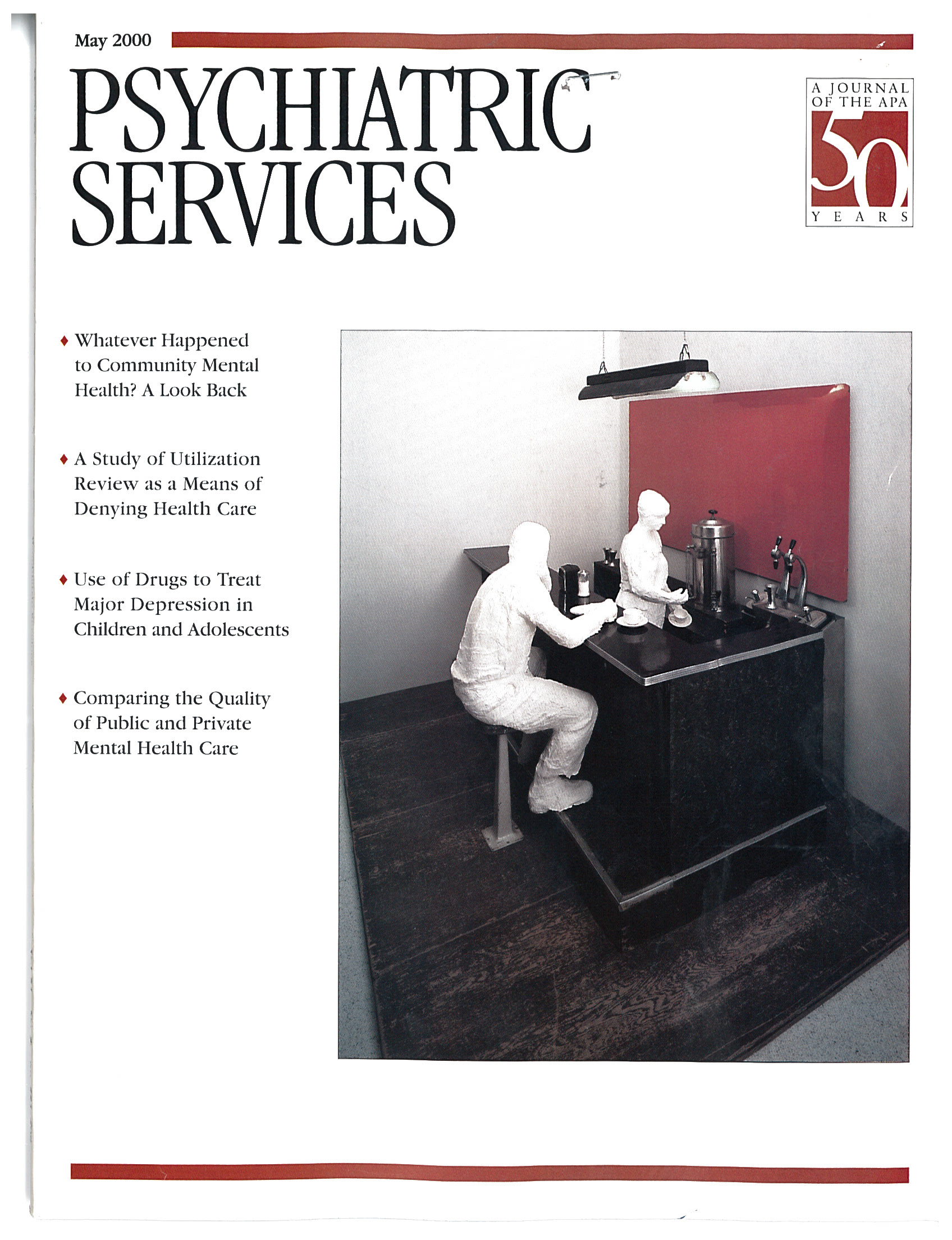In his informative analysis (page 616) of Walter Barton's comprehensive and prescient 1966 article, "Trends in Community Mental Health Programs," Steven Sharfstein describes trends in public psychiatry. However, neither author highlights the devastating fragmentation of responsibility that has caused the present deterioration of psychiatric care.
• The community mental health movement characterized state hospitals as iatrogenic, as fostering "institutionalitis," leaving the states with a pernicious reputation. Federal guidelines of the late 1960s prohibited the states from becoming part of the governance of community mental health centers. By the 1970s state mental health departments had become little more than grant writers, simply chasing the federal dollar. By the time President Reagan pulled the plug on the community mental health centers program in 1981, the states' sense of responsibility for psychiatric patients had atrophied.
• The community mental health movement shifted patients from a system in which the state was responsible for meeting all a patient's needs to one in which housing, food, social support, medical care, and psychiatric treatment were each provided by separate authorities.
• The movement displaced clinical responsibility for patients from psychiatry to many different disciplines, even nonclinical ones. Many disciplines took management roles at all government levels, and no profession felt responsible.
• The development of the National Institute on Alcohol Abuse and Alcoholism and the National Institute on Drug Abuse, and later the policies of the Substance Abuse and Mental Health Services Administration, discouraged community mental health programs from being responsible for substance-related disorders, an extremely destructive separation of treatment tasks.
• In 1985 an American Psychiatric Association conference defined what services chronically mentally ill patients needed. But because no one could identify who was responsible for providing those services, the next 15 years saw an increased number of mentally ill people who were homeless or incarcerated.
• It remains unclear even now what level of government is responsible for psychiatrically disabled people: federal, state, county, city, or "local."
Is there any hope of reversing what Sharfstein describes as the "state of collapse" of the public mental health system? Maybe. The Supreme Court in its 1999 Olmstead decision said, with qualifications, that states are responsible for providing community placement for persons with mental disabilities. Last January the Clinton administration promised to enforce that decision.

